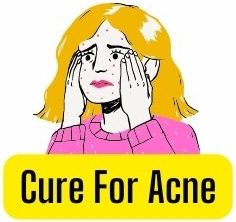Acne, a common skin condition affecting millions of individuals worldwide, is often a source of physical discomfort and emotional distress. Various factors contribute to the development of acne, including hormonal imbalances, which has led to the exploration of hormonal interventions as potential treatment options.
One such intervention that has garnered considerable attention in recent years is the use of contraceptive pills. Despite their primary function as a means of birth control, these medications have demonstrated varying degrees of effectiveness in addressing acne-related concerns.
Given the multifaceted nature of acne and its array of potential treatments, it is crucial for individuals to make informed decisions regarding their skincare choices.
With an abundance of research on the subject, this article aims to provide a comprehensive overview of contraceptive pills as they relate to acne management – highlighting various types available on the market, examining scientific evidence supporting or refuting their efficacy in treating acne symptoms and discussing factors that may impact their overall effectiveness.
Through this investigation, readers will be better equipped with knowledge necessary for making empowered decisions about whether contraceptive pills may serve as an ally or foe in their personal fight against acne.
Key Takeaways
– Contraceptive pills containing estrogen and progestin can effectively treat various types of acne caused by hormonal imbalances.
– Progestin-only pills may be a suitable alternative for those who cannot take estrogen-based medications, but success in treating acne may depend on progestin sensitivity.
– Hormonal regulation plays a crucial role in determining the impact of contraceptive pills on acne, and not all pills are created equal; some may exacerbate acne.
– Individual responses to contraceptive pills may vary, and it is important to discuss concerns, personal experiences, and medical history with a qualified healthcare professional to make evidence-based decisions prioritizing effectiveness and personal well-being.
Understanding Acne and Its Causes
Undeniably, comprehending the multifaceted nature of acne and its underlying causes is crucial in determining the role contraceptive pills may play in either alleviating or exacerbating this prevalent skin condition.
Acne, a common dermatological concern affecting millions worldwide, results from a complex interplay between genetic factors, hormonal fluctuations, inflammation, and microbial colonization—primarily by Propionibacterium acnes.
Numerous external factors serve as acne triggers; these include stress, diet (particularly high-glycemic foods), cosmetics use, and environmental pollutants.
In recent years, there has been growing interest in exploring natural remedies for acne management due to their perceived safety profile and potential efficacy.
Various studies have identified hormone imbalances as significant contributors to acne development, specifically an excess of androgens such as testosterone.
This hormonal surge stimulates sebaceous glands to produce excessive sebum—an oily substance that can clog pores when mixed with dead skin cells—thus creating a conducive environment for P. acnes proliferation and subsequent inflammation.
Contraceptive pills containing estrogen and progestin components have demonstrated promising outcomes in mitigating hormone-driven acne by reducing circulating androgen levels; however, not all contraceptives exhibit equal efficacy or are suitable for every individual seeking relief from acne symptoms.
It is paramount that healthcare professionals carefully evaluate each patient’s unique circumstances before prescribing contraceptive pills as part of an integrated acne management strategy alongside other evidence-based treatments or natural remedies tailored to meet individual needs while safeguarding overall health and well-being.
Types of Contraceptive Pills
In the realm of contraceptive methods, various types of oral contraceptives are available for individuals seeking effective birth control options.
Combined oral contraceptives (COCs) contain both estrogen and progestin hormones, regulating menstrual cycles and effectively preventing pregnancy.
Conversely, progestin-only pills (POP), often referred to as the ‘mini-pill,’ offer an alternative for those who cannot take estrogen-based medications due to particular health concerns or side effects.
Combined oral contraceptives
Approximately 14% of women who take combined oral contraceptives experience improvements in acne symptoms, as these medications regulate hormonal fluctuations that can contribute to breakouts.
Combined oral contraceptives contain both estrogen and progestin, which work together to provide hormonal balancing and reduce skin sensitivity.
The benefits of using combined oral contraceptives for acne management include:
– Hormonal balancing
- Stabilizes the levels of hormones such as testosterone, estrogen, and progesterone
- Reduces excessive sebum production associated with hormonal imbalances
– Skin sensitivity
- Decreases inflammation caused by clogged pores and bacteria buildup
- Helps improve skin texture and appearance
Combined oral contraceptives have been proven effective in treating various types of acne, including mild to moderate inflammatory acne and adult-onset acne.
This form of treatment is particularly beneficial for individuals who seek freedom from the physical discomfort and emotional distress associated with persistent breakouts.
However, it is essential to consult a healthcare professional before starting any new medication or treatment plan.
Potential side effects may vary among individuals; therefore, a tailored approach considering each person’s unique medical history and needs will ensure optimal results while minimizing potential risks.
In conclusion, combined oral contraceptives can be considered allies in the battle against acne when used under proper guidance from a healthcare provider.
Progestin-only pills
Progestin-only medications, another form of hormonal treatment, offer an alternative option for individuals seeking relief from acne symptoms while simultaneously fulfilling contraceptive needs.
These medications, commonly known as ‘mini-pills,’contain only progestin without the addition of estrogen and are often prescribed to individuals who have contraindications or sensitivities to combined oral contraceptives.
Progestin sensitivity is a significant factor in determining the success of this method in treating acne. Some studies suggest that certain types of progestins may be more beneficial than others in addressing acne concerns due to their varying degrees of androgenic effects.
Pill alternatives such as progestin-only injections, implants, or intrauterine devices (IUDs) can also provide effective contraception while potentially improving skin conditions.
However, it is essential to note that responses to these treatments can vary significantly among individuals.
In some cases, progestin-only methods may not be as effective in combating acne compared to combined oral contraceptives containing both estrogen and progestin.
It is crucial for patients considering these options to consult with their healthcare provider about their specific circumstances and goals for treatment so that they can make an informed decision about which method best suits their needs.
Through careful consideration and professional guidance, many people will find freedom from both unwanted pregnancy and persistent acne symptoms by choosing the appropriate contraceptive method tailored to their unique situation.
The Science Behind Contraceptive Pills and Acne
The science behind contraceptive pills and acne is rooted in hormonal regulation and the reduction of sebum production.
Hormonal fluctuations, particularly an increase in androgens, can trigger acne by stimulating sebaceous glands to produce excess oil or sebum.
Contraceptive pills containing a combination of estrogen and progestin work to regulate these hormones, thereby reducing sebum production and mitigating acne breakouts.
Hormonal regulation
Hormonal regulation plays a crucial role in determining the impact of contraceptive pills on acne, as these medications work by altering hormone levels to prevent pregnancy and, in some cases, improve skin conditions.
Contraceptive pills often contain synthetic versions of hormones such as estrogen and progesterone, which can help balance out hormonal fluctuations that contribute to acne breakouts.
However, not all contraceptive pills are created equal; some may actually exacerbate acne due to their specific hormone formulations or individual reactions.
| Hormone | Function | Relationship with Acne |
|---|---|---|
| Estrogen | Regulates menstrual cycle and maintains pregnancy | Can reduce sebum production, thus decreasing the risk of acne |
| Progesterone | Prepares uterus for fertilization and supports embryo implantation | May increase sebum production and promote bacterial growth, potentially worsening acne |
| Androgens (e.g., testosterone) | Responsible for male characteristics development and maintenance | Excess levels can lead to increased sebum production and inflammation, contributing to acne |
For individuals who prefer natural alternatives or wish to avoid potential hormonal imbalances caused by contraceptive pills, several lifestyle changes can be implemented.
These include adopting a healthy diet rich in antioxidants and omega-3 fatty acids, engaging in regular exercise to help regulate hormone levels naturally, managing stress through mindfulness practices like meditation or yoga, maintaining proper skincare routines that involve gentle cleansing without over-exfoliation or harsh chemicals.
Furthermore, it is essential for individuals considering any form of treatment for acne – whether hormonal or non-hormonal – to consult with a healthcare professional who can provide personalized guidance based on their unique circumstances and medical history.
Reduction of sebum production
In examining the role of hormones in acne development, it is crucial to consider the impact of hormonal regulation on sebum production. Sebum control is a key factor in maintaining an acne-free lifestyle, as excessive sebum can clog pores and contribute to the formation of acne lesions.
Contraceptive pills may play a significant role in modulating sebum production, thus affecting acne severity. Contraceptive pills containing anti-androgenic progestins have been shown to reduce sebum production by inhibiting the activity of androgens, which are hormones responsible for stimulating sebaceous gland function.
As a result, these contraceptive formulations contribute to a less oily skin environment that is less conducive for acne development.
Furthermore, some studies have indicated that certain combined oral contraceptives (COCs) can improve acne symptoms through their estrogen component by increasing sex hormone-binding globulin (SHBG) levels and reducing free testosterone availability.
By targeting multiple factors involved in the patho physiology of acne, contraceptive pills may serve as effective allies in achieving an acne-free lifestyle for some individuals experiencing hormonally-influenced breakouts or exacer bations.
Factors Impacting the Effectiveness of Contraceptive Pills on Acne
Several factors impact the effectiveness of contraceptive pills on acne, including individual hormonal profiles, pill formulation, and consistency in pill usage.
Hormonal balance is essential for regulating various bodily functions, including sebum production, which can contribute to acne development. Every individual has a unique hormonal profile that may respond differently to specific contraceptives.
Therefore, it is crucial for healthcare providers to consider each patient’s medical history and hormone levels when prescribing contraceptive pills as an acne treatment.
Additionally, various formulations of contraceptive pills exist in the market today with diverse combinations of active ingredients that target different underlying mechanisms of acne triggers.
Consistency in taking the prescribed contraceptive pill also plays a critical role in its effectiveness against acne. Inconsistent use or frequent changes in medication can disrupt the body’s hormonal balance and potentially exacerbate existing skin conditions.
Furthermore, it is important to note that improvements in acne might take several months after starting contraceptive pills; thus, patience and adherence are necessary for achieving desired results.
Given these factors impacting their efficacy on treating acne, contraceptive pills should be considered as part of a comprehensive approach under guidance from healthcare professionals who can tailor treatment plans according to patients’ unique needs and circumstances while ensuring optimal safety and outcomes.
Making Informed Decisions About Contraceptive Pills and Acne Treatment
Navigating the complex landscape of birth control options and their potential impact on skin health requires careful consideration and consultation with healthcare professionals.
Individual responses to contraceptive pills may vary, making it essential for patients to discuss their concerns, personal experiences, and medical history with a qualified medical professional who can provide tailored advice and recommendations.
In doing so, individuals can make informed decisions about whether using contraceptive pills is an appropriate acne treatment option for them.
- When considering the use of contraceptive pills for acne management, it is important to explore various factors that may influence one’s decision:
- The severity of acne and its impact on quality of life
- Previous response to alternative treatments or medications
- Potential side effects associated with specific types of contraceptive pills
- Personal preferences regarding hormonal vs non-hormonal methods
In addition to evaluating these factors, individuals should remain open to exploring alternative treatments that may be more suitable or effective in addressing their unique skin concerns.
By engaging in open dialogue with healthcare providers and staying informed about the latest research on acne treatment options, individuals can take charge of their skin health journey while ensuring they are making evidence-based decisions that prioritize both effectiveness and personal well-being.
Frequently Asked Questions
Are there any long-term side effects of using contraceptive pills for acne treatment?
Navigating the stormy seas of hormonal fluctuations, long-term use of contraceptive pills for acne treatment may cause skin sensitivity. However, evidence-based research suggests minimal side effects in most cases, ensuring patient-focused care and liberation from acne concerns.
How do contraceptive pills affect acne-prone skin in comparison to other acne treatments?
Comparative studies indicate that contraceptive pills effectively regulate hormonal balance, diminishing acne triggers. While other treatments target specific symptoms, contraceptive pills address underlying causes, offering a comprehensive approach for acne-prone skin management.
Can contraceptive pills be used simultaneously with other acne treatments or medications?
In a study examining acne relapse prevention, simultaneous use of contraceptive pills with other treatments demonstrated improved hormonal balance impact. Combining therapies may offer enhanced efficacy for patients seeking clear skin liberation.
How long does it usually take for contraceptive pills to show significant improvement in acne?
Acne duration varies when using contraceptive pills, as hormonal balance restoration is individual. Significant improvement typically manifests within three to six months, but optimal results may require consistent use for up to a year.
Are there any specific brands of contraceptive pills that are more effective in treating acne than others?
Navigating the labyrinth of acne prevention and pill selection, certain contraceptive brands emerge as champions. Evidence suggests that pills containing drospirenone, norgestimate, or cyproterone acetate demonstrate superior efficacy in mitigating acne symptoms.
Conclusion
In the realm of acne treatment, contraceptive pills may appear as a double-edged sword, offering both remedy and exacerbation depending on individual circumstances.
The intricate interplay between hormones, genetics, and environmental factors compels individuals to tread cautiously when considering this pharmaceutical intervention.
Ultimately, the quest for clear skin requires an informed decision-making process that encompasses scientific knowledge and personal understanding.
As in any journey fraught with uncertainty, consulting qualified professionals and seeking evidence-based guidance paves the way to an enlightened destination free from blemish.





